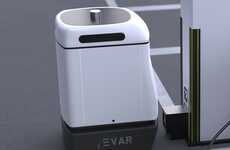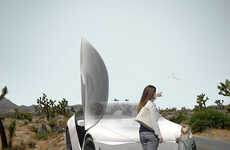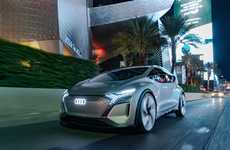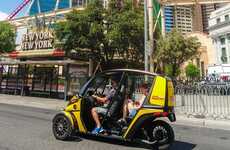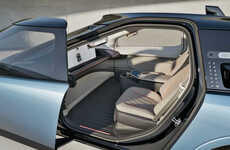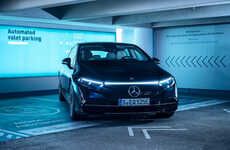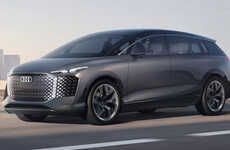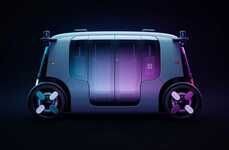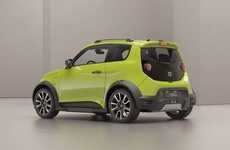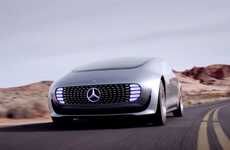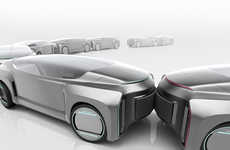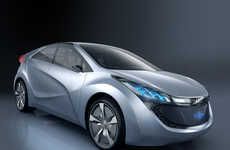
The Afkar Electric Cars Will Drive Short Distances Fully Autonomously
Rahul Kalvapalle — November 14, 2014 — Autos
References: fraunhofer.de & gizmag
Afkar is the German abbreviation for 'autonomous driving and intelligent chassis concept for an all-electric vehicle'. The project, being worked on by scientists and engineers at the Fraunhofer Institute for Manufacturing Engineering and Automation IPA, aims to develop a robotic electric car that can independently navigate around unfamiliar spaces and avoid obstacles on its way to its destination.
The Afkar electric vehicle will be able to find parking spaces and park without causing or picking up scratches or bumps. It could be fitted with a wireless interface to help it communicate with garages and charging stations and locate vacant charging stations.
The basic technology required by the car is already available; however the scientists are figuring out how to embed them into the vehicles to make them work as intended.
The Afkar electric vehicle will be able to find parking spaces and park without causing or picking up scratches or bumps. It could be fitted with a wireless interface to help it communicate with garages and charging stations and locate vacant charging stations.
The basic technology required by the car is already available; however the scientists are figuring out how to embed them into the vehicles to make them work as intended.
Trend Themes
1. Autonomous Driving - Opportunity for disruptive innovation: Developing advanced algorithms and sensors to enhance the autonomous capabilities of electric cars.
2. Intelligent Chassis - Opportunity for disruptive innovation: Creating lightweight and efficient chassis designs that optimize vehicle performance and energy efficiency.
3. Wireless Interface - Opportunity for disruptive innovation: Designing seamless wireless communication systems for electric cars to interact with charging stations and parking facilities.
Industry Implications
1. Automotive - Opportunity for disruptive innovation: Integrating autonomous and electric technologies to create innovative and sustainable transportation solutions.
2. Manufacturing Engineering - Opportunity for disruptive innovation: Implementing advanced manufacturing techniques and automation processes to optimize the production of electric and autonomous vehicles.
3. Charging Infrastructure - Opportunity for disruptive innovation: Establishing efficient and widespread charging networks to support the growing number of electric vehicles on the road.
1.5
Score
Popularity
Activity
Freshness

